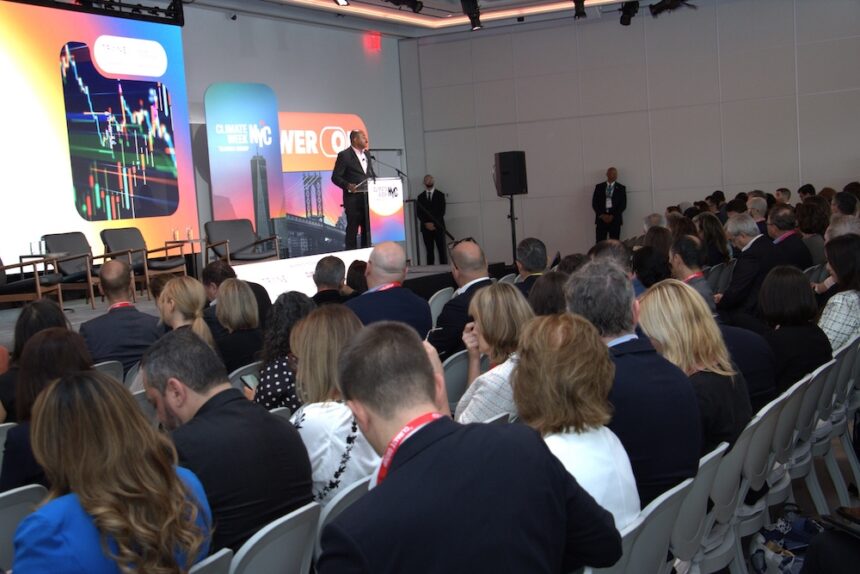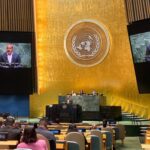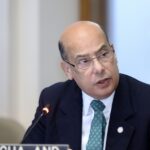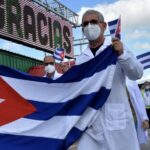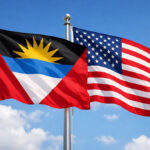Antigua and Barbuda’s Prime Minister, the Honourable Gaston Browne, used his keynote at the opening of Climate Week NYC to deliver a stark message: small island states did not create the climate crisis, but they are paying for it—economically, socially, and existentially.
Prime Minister Browne anchored his remarks in his country’s lived experience. Since independence in 1981, Antigua and Barbuda has weathered hurricanes, droughts, and external shocks with gritty resilience, he said. But climate change has become a “threat multiplier,” turning each storm into a fiscal crisis, each drought into a food-security emergency, and every inch of sea-level rise into an existential threat. He recalled Hurricane Irma’s destruction of 95 percent of homes on Barbuda in 2017 and a recovery bill exceeding US$200 million—costs that fall hardest on nations that emit less than 0.01 percent of global greenhouse gases.
“Every degree of warming is an invoice sent to small islands,” PM Browne said, arguing that those invoices are now due and unpayable without fair finance at scale. He added that advances in event attribution science prove extreme-loss events are “not acts of God,” but consequences of human emissions—converting Loss and Damage from a moral plea into a legal and financial claim.
The Prime Minister warned that while pledges trickle in by the millions, the needs run to the hundreds of billions. He called on the international community to avoid creating “another empty shell” and instead fully capitalise the Loss and Damage Fund to provide meaningful, predictable financing for those on the front lines. “Loss and Damage is not theory—it is lived reality,” he said.
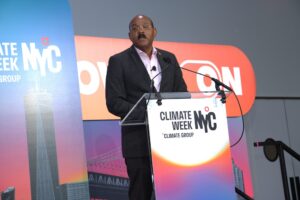
Prime Minister Browne also pressed for a fairer compass for development finance. Traditional GDP per capita metrics, he argued, misclassify vulnerable economies and cut them off from concessional resources. He urged adoption of the Multidimensional Vulnerability Index (MVI) and highlighted the Antigua and Barbuda Agenda for SIDS (ABAS), which calls for scaled, accessible, and just finance, recognition of the oceans’ centrality to planetary stability, and the mainstreaming of SIDS’ special circumstances across negotiations.
At home, Antigua and Barbuda is not standing still. PM Browne outlined a slate of resilience investments—stronger building codes, rainwater harvesting, desalination, and climate-smart agriculture—to shore up water and food security. But domestic action, he stressed, cannot substitute for global responsibility: “Climate finance is not optional— it is quintessential to development.”
The speech’s throughline was justice. Prime Minister Browne framed climate finance not as charity but as reparation for measurable harms, now traceable to emitters by science. He argued the goal is not simply to endure, but to ensure “resilience is not the ceiling of our ambition, but the bridge to justice, dignity, security, and shared prosperity.”
As Climate Week begins alongside the UN General Assembly’s High-Level Week, Prime Minister Browne’s message set a clear bar for credibility: deliver finance at scale, fast, and align access rules with real-world vulnerability—so that the countries least responsible for warming are no longer left to foot the bill.

